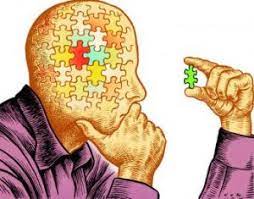 Personal identity is the unique identity of a person over time.
Personal identity is the unique identity of a person over time.
Personal identity refers to the distinct characteristics, traits, and qualities that define an individual and distinguish them from others.
It encompasses various aspects, including physical, psychological, social, and cultural dimensions.
Physical identity refers to the physical attributes that make each person unique, such as appearance, body structure, and biological characteristics like sex, race, and genetic makeup.
Psychological identity encompasses a person’s thoughts, beliefs, emotions, values, attitudes, and personality traits, intelligence, temperament, interests, and the individual’s subjective experience of themselves.
Social identity refers to the way individuals define themselves in relation to social groups.
Social identity includes aspects such as gender, ethnicity, nationality, occupation, religion, and other affiliations that shape a person’s social roles and interactions.
Cultural identity relates to the shared beliefs, customs, practices, and values of a particular cultural or ethnic group. It encompasses language, traditions, arts, cultural heritage, and the sense of belonging to a specific community.
Self-concept is the individual’s perception and understanding of themselves, and involves one’s beliefs, thoughts, and evaluations about their personal attributes.
Self-identity is the overarching sense of who one is, including the various aspects of personal identity.
Personal identity is complex and can evolve over time as individuals go through different life experiences, relationships, and self-reflection.
Genetics, upbringing, education, environment, and personal choices, contribute to the formation of personal identity.
Understanding and exploring one’s personal identity can be a lifelong journey of self-discovery, introspection, and cultural exploration.
Personal identity plays a fundamental role in shaping how individuals perceive themselves, relate to others, and find meaning and purpose in their lives.
Personal identity determines the necessary and sufficient conditions under which a person at one time and a person at another time can be said to be the same person, persisting through time.
Personal identity concerns itself with the question of what features and traits characterize a person at a given time.
Personal identity philosophy deals with maintaining one’s identity when confronted by different philosophic propositions, postulates, and presuppositions about the world and its nature.
Personal identity is the persistence over time to have continuous bodily existence, some asserting the proposition that a psychological relation is not necessary for personal continuity.
Identity of humans is based on their consciousness.
One’s personal continuity, also called personal persistence or self-continuity, is the uninterrupted connection concerning a particular person of their private life and personality.
Personal continuity is an important part of identity, ensuring that the qualities of the mind, such as self-awareness, sentience, sapience, and the ability to perceive the relationship between oneself and one’s environment, are consistent from one moment to the next.
Personal continuity is a continuous and connected period of time, and is intimately related to do with a person’s body or physical being in a single four-dimensional continuum.
Associationism, allows events or views to be associated with each other in the mind, thus leading to a form of learning.
Some of these events form an autobiographical memory in which each is a personal representation of the general or specific events and personal facts.
Ego integrity is the psychological concept of the ego’s assurance of its capacity for order and meaning, and the confidence that the inner sameness and continuity are matched by the sameness and continuity of one’s meaning for others.
It is suggested that there is no such thing as a permanent identity: the self changes at every moment and has no permanent identity, as it is in a constant process of changing or becoming an ever-changing self.
Some speculate identity is a bundle or collection of different perceptions which succeed each other with rapidity and are in perpetual flux and movement.
The sense of self breaks down when considering some events such as memory loss, dissociative identity disorder, brain damage, and brainwashing.
